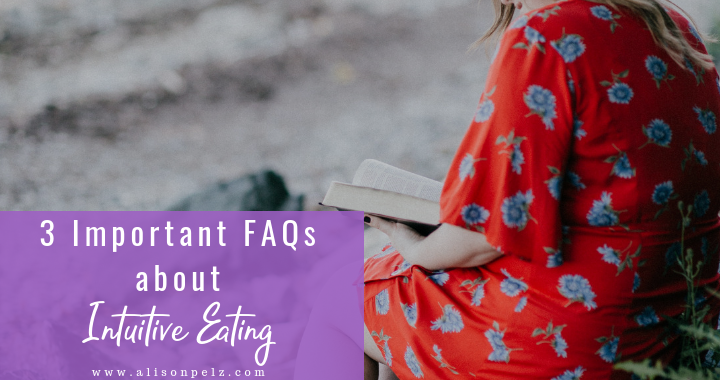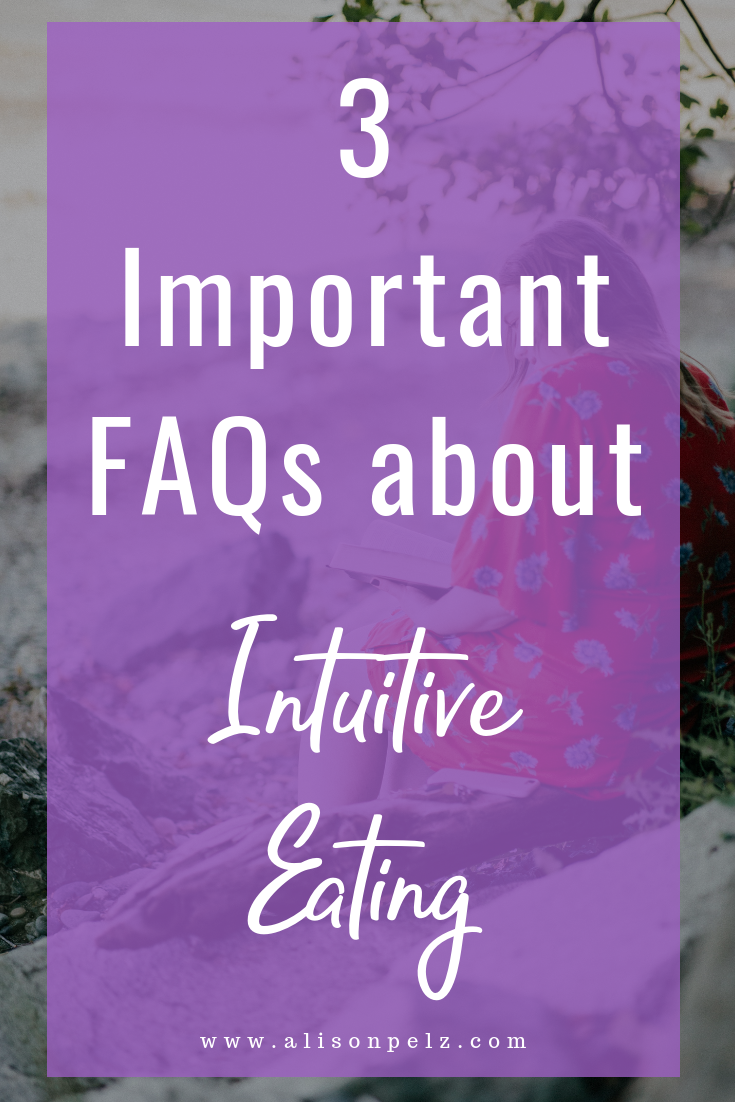Intuitive eating is a term coined by registered dietitians Evelyn Tribole and Elyse Resch. Tribole and Resch’s book Intuitive Eating’s purpose is to help chronic dieters and people with food and body image struggles heal their relationship with food.
Unlike diets, intuitive eating sharpens our ability to listen to our bodies and to understand when we are hungry and full, what foods to eat, and when is the best time for our bodies to eat. This results in a reduction of worry about food and guilt often associated with dieting.
In a nutshell, intuitive eating is learning to tune into your body’s signals in order to feed and nourish yourself instead of a diet or meal plan.
Question: Is intuitive eating the same as mindful eating?
Answer: Intuitive eating and mindful eating are not synonymous. However, they do have some overlap. Think of mindfulness as focusing your attention on one thing. For example, you can practice mindfulness when you are petting your dog. You notice how your dog looks, how it feels to pet your dog, and how your dog responds to your touch.
You can also practice mindfulness while eating. To do this, you may notice the appearance, temperature, consistency, and smell of what you are eating, free from other distractions.
When I teach clients intuitive eating, I encourage them to practice mindful eating because it helps increase the pleasure of eating and dial into internal signals that your body is giving you in regards to food preferences, and hunger and fullness.
Question: I want to lose weight. Is intuitive eating going to help me achieve my weight loss goals?
Answer: No, intuitive eating is not a weight loss program. It is a way of relating to food. While diets tell us to look to the diet plan to know how much and what to eat, intuitive eating postulates that we have all of the knowledge within ourselves on how to feed ourselves. Chronic dieting teaches us to ignore our internal cues.
You may be thinking, “Well, I overeat pretty regularly. If I start listening to my body and stop overeating, it will lead to weight loss.” This is not necessarily true because body weight and metabolism are under substantial genetic control.
However, intuitive eating will provide a relief from the vicious diet cycle which will help alleviate the feelings of shame and guilt associated with dieting.
Question: I think I may have an eating disorder. Will intuitive eating help me get over my eating disorder?
Answer: I am glad that you have recognized that you may have an eating disorder. The next step is to get assessed by a treatment professional.
If you do have an eating disorder, getting adequate treatment from professional is a must for recovery. Unfortunately, eating disorders don’t go away on their own. Treatment is important to reduce medical risks associated with eating disorders, including death. (Anorexia nervosa has the highest mortality rate of all psychiatric conditions.)
That being said, intuitive eating could be part of your treatment process, in the later stages of treatment. Together with your treatment team, you will be able to determine if and when intuitive eating is right for you.


